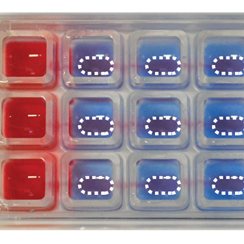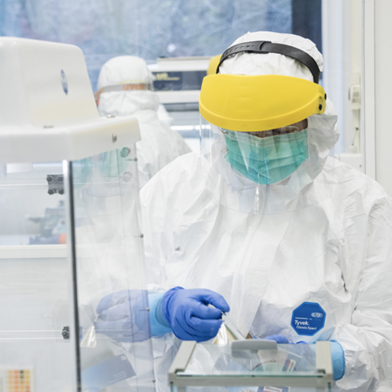01
Novel intestine-on-chip system

The pathogenesis of inflammatory bowel disease is complex and not fully understood. A novel intestine-on-chip microfluidic system, developed by the Bio Engineering Laboratory of Andreas Hierlemann now enables to study in detail the physiological processes during inflammation. The system helps to elucidate the role of different immune cell types in intestinal inflammation and their specific responses to anti-inflammatory drugs and provides valuable insights for developing therapeutic strategies.
Syphilis-like diseases were already widespread in America before the arrival of Columbus

One of the biggest mysteries in historical epidemics is whether syphilis was introduced in Europe by Columbus’ first voyage to the Americas. A new international study, led by the University of Basel with contributions from the Computational Evolution group at D-BSSE, reconstructed Treponema pallidum genomes from nearly 2000-year-old remains from Brazil. The finding: treponema diseases were already present in the New World at least 1000 years before Columbus set sail.
New agent blocks stress response

If the body’s natural stress response gets knocked off balance, it can result in physical and mental health disorders. Researchers at ETH Zurich have developed an agent capable of selectively inhibiting this response. In Andreas Hierleman’s Bio Engineering Laboratory the electrophysiological measurements in cell systems were carried out.
NCCR Molecular Systems Engineering offers grants for its art-science exchange programme

Launching in March 2024, the NCCR MSE is inviting Phd students and postdoctoral researchers to apply for the new art-science exchange programme: “Brigding Horizons - Art and Science’s Creative Collision”.
Complement system causes cell damage in Long Covid

Long Covid patients suffer from chronic symptoms such as fatigue or shortness of breath. As researchers at the University of Zurich and University Hospital Zurich with support from D-BSSE data analysts discovered, this is to some extent due to a part of our immune system called the complement system. The study identified a pattern in the blood proteins that will improve the diagnosis and perhaps also the targeted treatment of Long Covid.